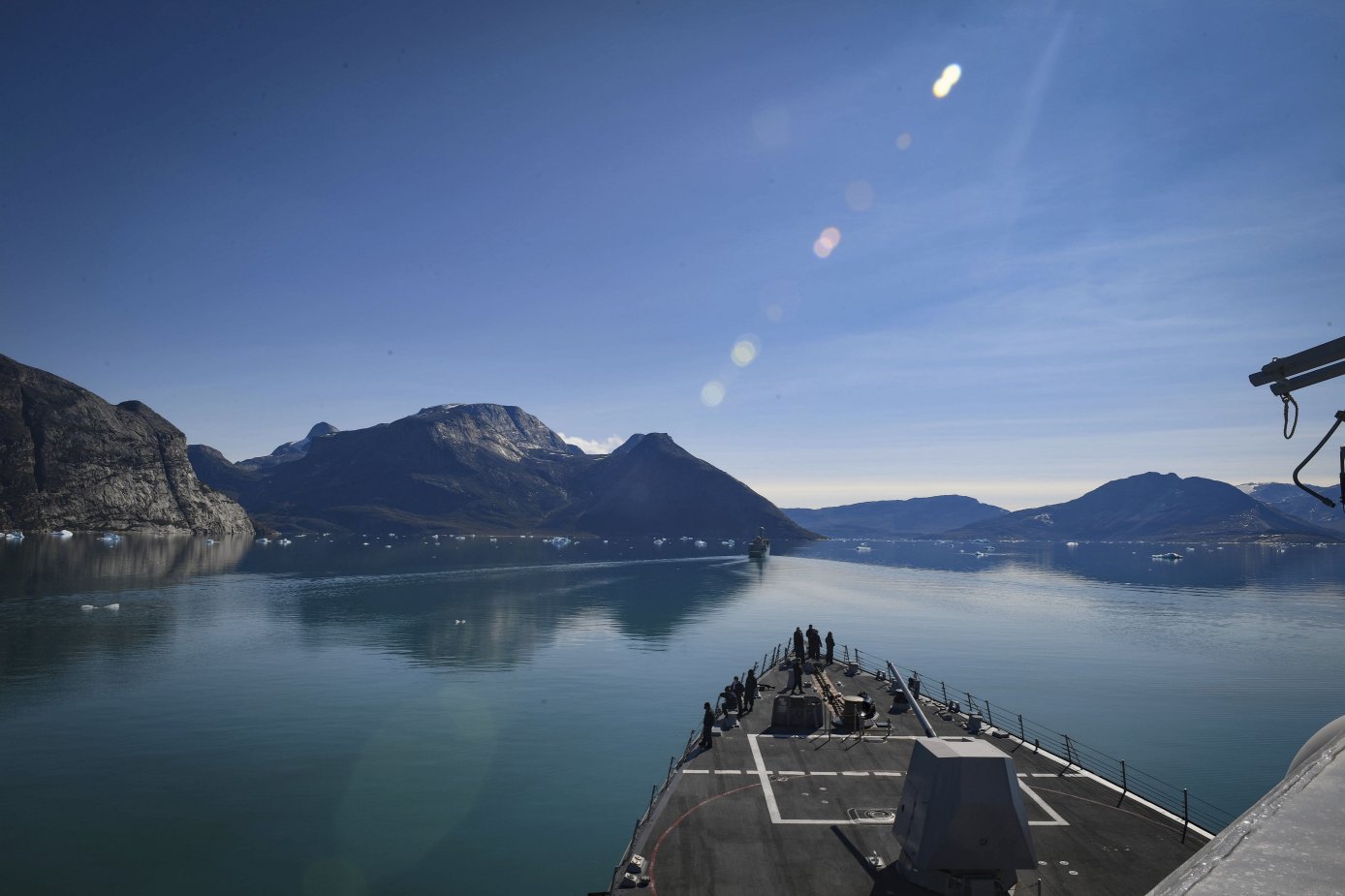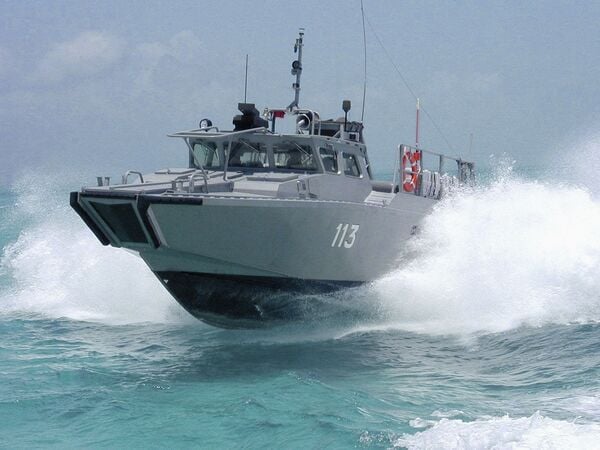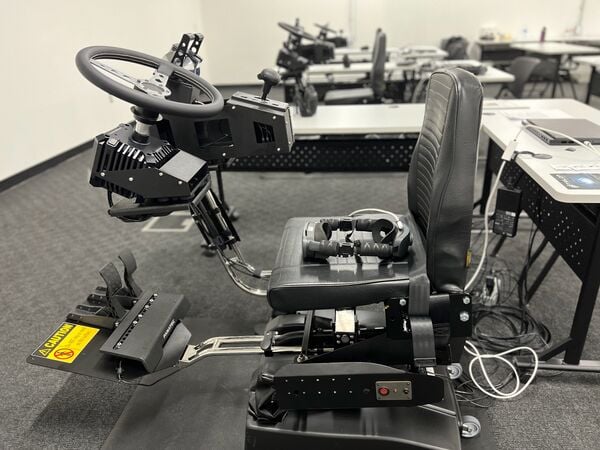- About
- Intara
- Capabilities
- Advisory
- Resources
- News
- Store
Vanishing act: policing new Arctic routes as ice cover retreats
18 November 2020
by Anika Torruella & Michael Fabey
As the polar ice mass above the Arctic Circle rapidly retracts due to global warming, diminishing ice is leading to increased maritime access to Arctic sea routes. The decrease in permanent sea ice, especially from June to September, has exposed coastal borders, driven increased military activity, and set the stage for the Arctic region to play a prominent role in geostrategic competition.

Royal Danish Navy Thetis-class frigate HDMS Triton (F358) transits Godthab Fjord in August 2020 during Canadian Operation ‘Nanook’, which included participation from Danish, French, and USCG forces to enhance Arctic capabilities. (USN)
Access to the Arctic's vast energy, mineral, fisheries, and other commercial resources is growing at precisely the same time that global interests in these assets intensifies, US Coast Guard (USCG) commandant Admiral Karl L Schultz stated in the service’s ‘Arctic Strategic Outlook’, released in April 2019. What was previously a region of energy interest and challenge is now an increasingly competitive domain.
Saab's Skapa initiative aims to speed technology into customers' hands
24 April 2024
by Jeremiah Cushman


Saab has developed an autonomy package for its CB 90 fast boat and demonstrated its ability to navigate the Swedish coast. Pictured above is a CB 90 that was delivered to Malaysia. (Dockstavarvet)
Saab has established a new business function to revamp how it develops and delivers products to meet changing customer requirements. Skapa, a Swedish word that means “to create, to make, or to shape”, will focus on solving customer and stakeholder problems at speed, Erik Smith, president and CEO of Saab in the United States, told reporters on 23 April. “Skapa will accelerate the development and deployment of cutting-edge solutions to our warfighters” at pace, he said.
XR Training-led consortium wins USMC ACV simulator contract
24 April 2024
by Giles Ebbutt


The XR Training consortium's USMC Amphibious Combat Vehicle driver simulator in its seat configuration with two DoF motion platform. The Vive HTC Elite headset is on the seat. The Instructor station laptop is on the table behind. (XR Training)
A consortium led by XR Training has been awarded a contract by the US Marine Corps (USMC) under an Other Transaction Agreement (OTA) to produce a driver training simulator for the new Amphibious Combat Vehicle (ACV). The value of the contract was not disclosed but Neil Levin, XR Training CEO, told Janes that it was “in the high seven-figure area”.
The consortium, which also includes Talon Simulations (hardware), 302 Interactive (software development), and Theory Studios (modelling and visuals), will deliver 81 simulators by the end of 2024, followed by a two-year training and sustainment period. Most simulators will be deployed to Camps Pendleton and Lejeune, with some for use for “schoolhouse” training and some for deploying units.
USN secretary calls for increased immigration to augment US shipbuilding labour
24 April 2024
by Michael Fabey


US Secretary of the Navy Carlos Del Toro said the country needs more blue-collar workers to meet navy shipbuilding needs at yards like Newport News Shipbuilding, shown here. (Janes/Michael Fabey)
To address the shortage of workers needed to build the number of ships needed to meet US Navy (USN) fleet plans, the country should seek to bring in more legal immigrants from foreign shores, according to US Secretary of the Navy Carlos Del Toro.
While acknowledging the impact of Covid-related issues on USN shipbuilding schedules on 23 April during an event at the Stimson Center, Del Toro said, “The bigger problem is the lack of blue-collar workers.”
Del Toro called on US lawmakers to “increase the amount of legal immigration” and work visas for potential shipbuilding work to come into country, despite the political divisions preventing such bipartisanship.
“We need to open up the spigot on legal immigration and allow blue-collar works to come here,” he said.
He underscored the need for retraining the new workforce for shipyard trades needed to build USN ships.
As the polar ice mass above the Arctic Circle rapidly retracts due to global warming, diminishing ic...
Latest Podcasts
Iran Israel analysis
In this podcast Janes analysts discuss the Iranian attacks on Israel on the 14 April. They highlight the military systems used by Iran and the performance and impact of these on Israel. They also discuss the implications of this attack goi...
Listen nowJanes Case Studies
Using Janes Intara to build a common intelligence picture: Russian build up on the Ukrainian border
View Case StudyNews Categories
 Security Details
Security Details